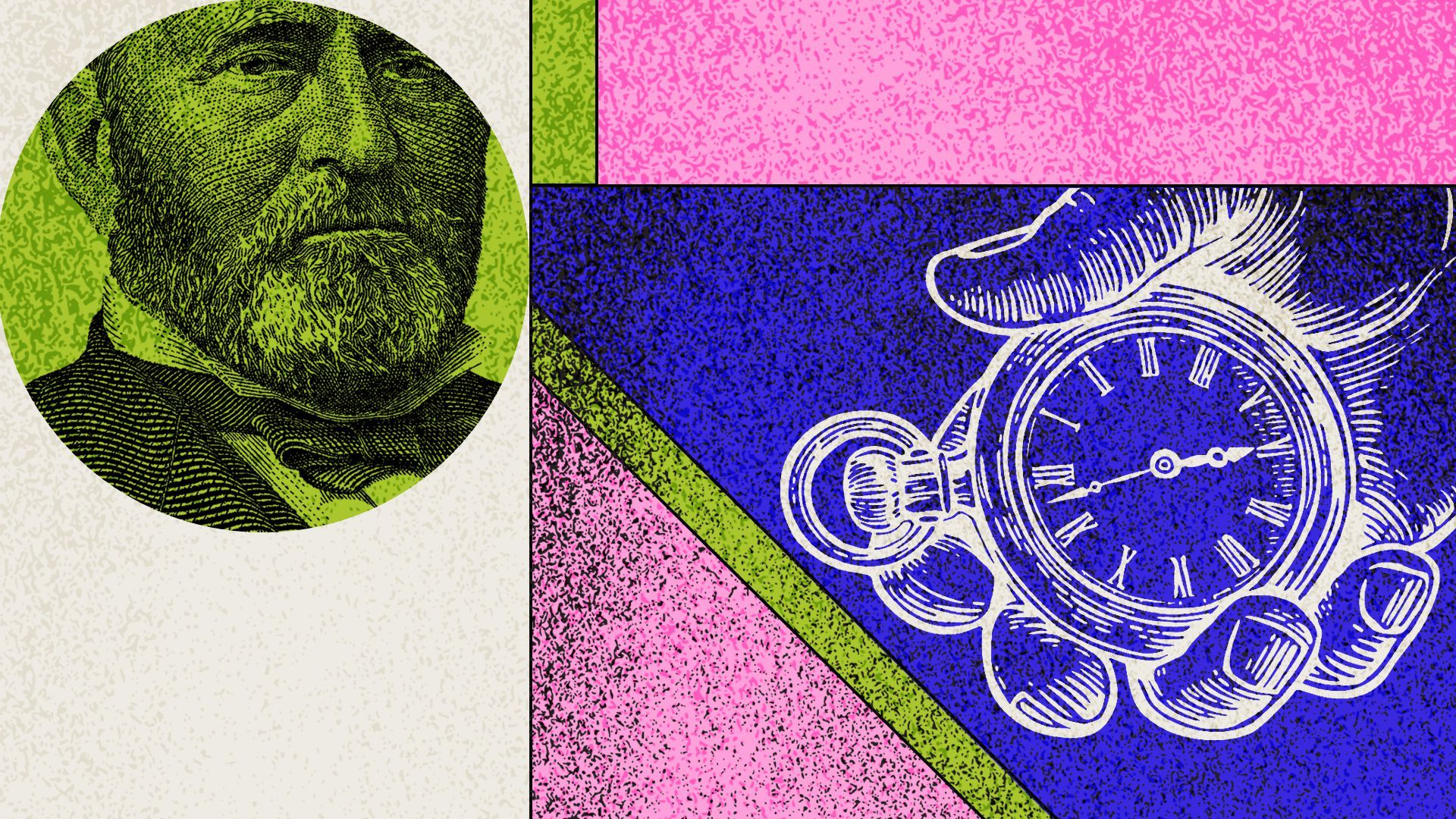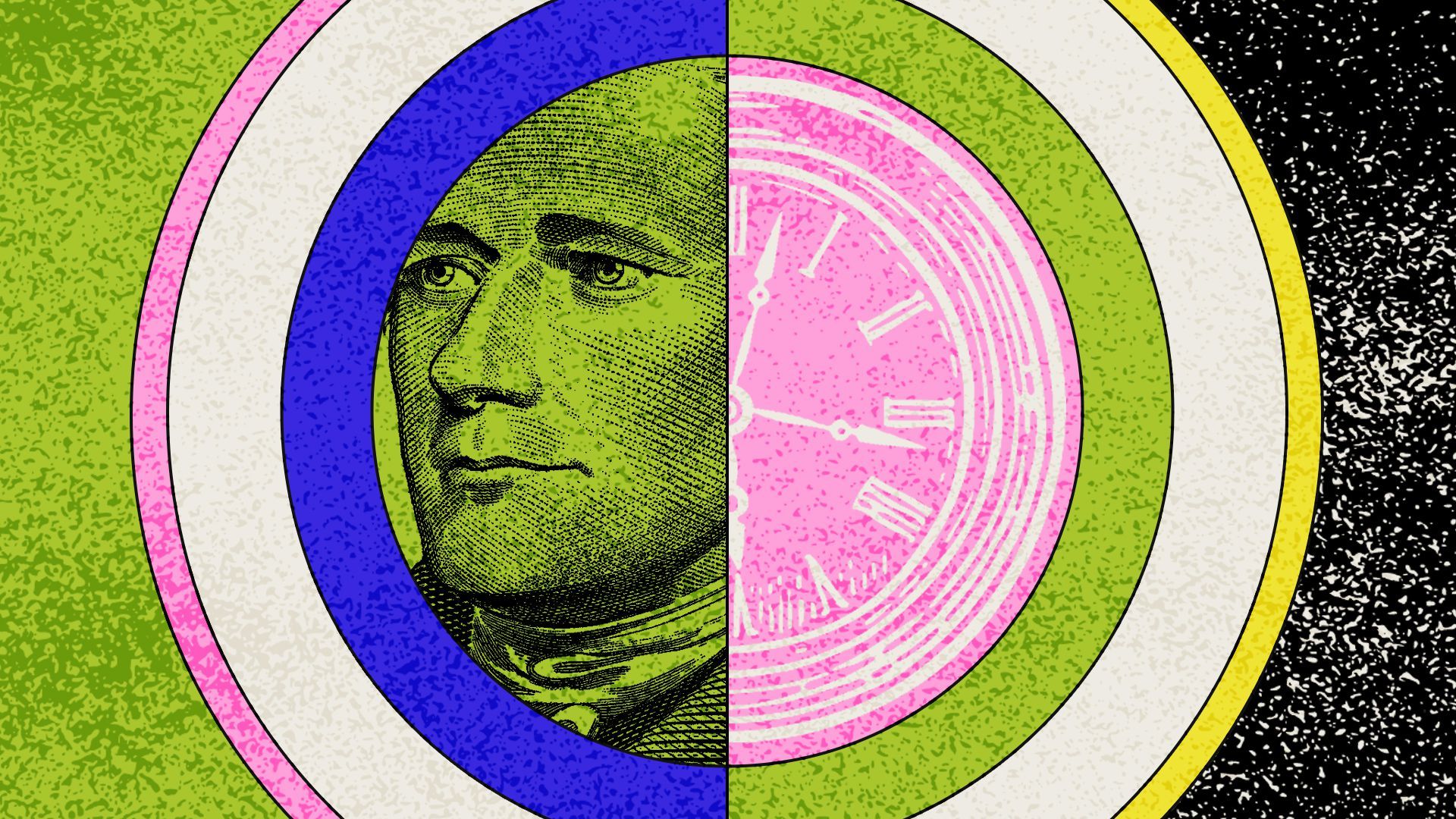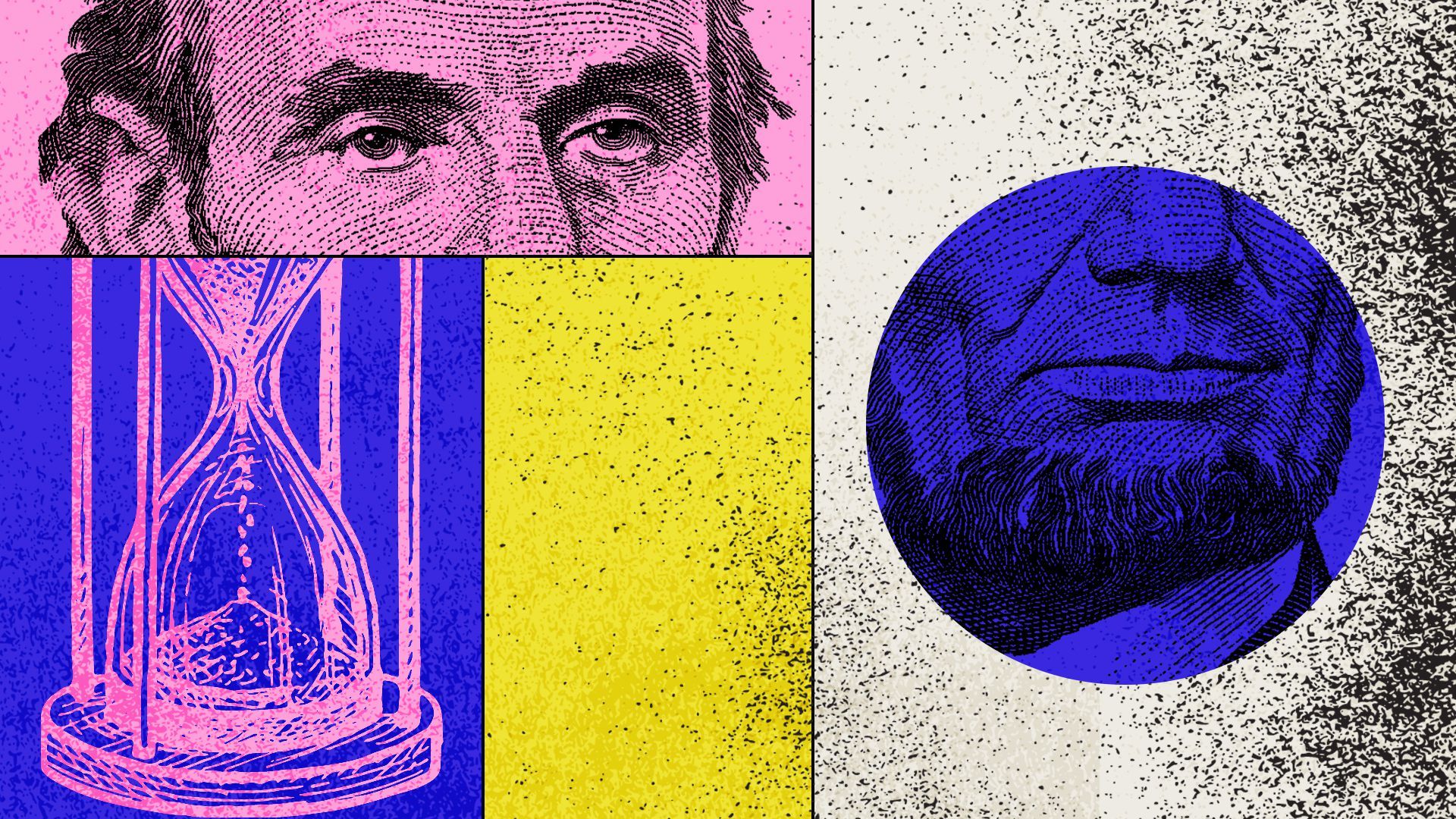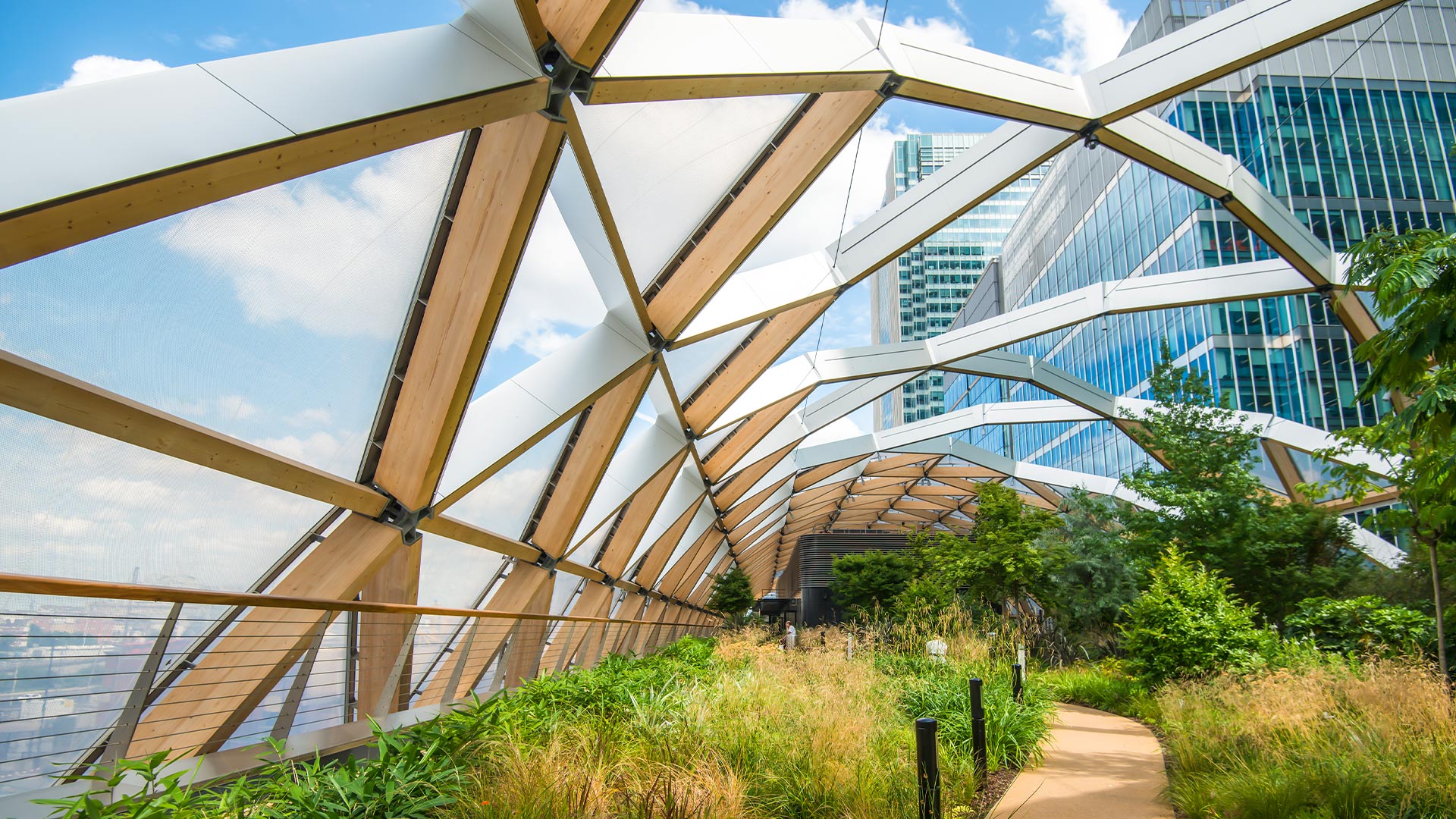| | | | | | | Presented By ICE | | | | Axios Markets | | By Felix Salmon · Jul 16, 2022 | | This week, Axios Markets Weekend is devoted to a single subject: BNPL. If you don't know what that is, or even if you do, read on: Thanks to my Axios colleagues, you're certain to learn something interesting in these 1,314 words, a 5-minute read. | | | | | | 1 big thing: The fastest-growing form of debt |  | | | Illustration: Sarah Grillo/Axios | | | | Buy-now-pay-later, or BNPL, is a rapidly growing but controversial way for consumers to borrow money to pay for goods and services. Think of it as the Gen Z credit card. Why it matters: The young BNPL industry has yet to be tested through an economic downturn. The next recession, if and when it comes, could put serious strains on borrowers and lenders alike. The big picture: BNPL has emerged as one of the most convenient online payment mechanisms for people without credit cards — which includes many young Americans, and a majority of online shoppers in countries like Germany. This year alone it is projected to grow by more than 43%, to $180 billion. - In Europe, many BNPL services allow you to receive your order and decide whether you want to keep it before you pay for it in full. That's pivotal to reassuring e-commerce skeptics they won't get ripped off.
- In the U.S., BNPL is generally pitched as a cashflow benefit — a way to pay for items over time if you don't have enough to pay in full today.
Driving the news: Apple's iOS 16 iPhone operating system, coming this fall, includes an "Apple Pay Later" service whereby Apple will lend you the money to purchase pretty much anything, interest free, over four installments spanning six weeks. - That includes perishable items like groceries or gasoline — goods that have little if any lasting utility.
Context: Affirm, the biggest BNPL company in the U.S., lends for longer time periods against durable goods — most famously, Peloton bikes. Though it does sometimes charge interest, it also makes a lot of money directly from merchants who find that buyers are more likely to pull the trigger on a big purchase if they can spread the payments out. The catch: If you buy a lot using BNPL, you can end up in real debt trouble. BNPL also lacks most of the consumer protections that come with credit cards. - The industry remains largely unregulated, although the Consumer Financial Protection Bureau is looking into the industry.
- One big weakness: It's very hard for one lender to know how much money a consumer might already owe to other BNPL companies.
The bottom line: Spreading out a purchase price over time makes sense — once. If it's something you do every month, however, the benefits rapidly evaporate. |     | | | | | | 2. Down and to the right |  Data: YCharts; Chart: Axios Visuals BNPL valuations, like other beneficiaries of the pandemic's boom times, are getting a reality check, writes Axios Pro Rata's Kia Kokalitcheva. Driving the news: Klarna, a Sweden-based buy-now-pay-later company, announced this week a stunning 85% valuation cut as part of raising $800 million in new funding. The big picture: The pandemic-fueled explosion in e-commerce was a boon for BNPL, which consumers usually encounter when they're ready to pay for their online purchases. Between the lines: The pandemic boom led many companies to focus less on margins and profits, especially as new entrants thickened the competition. - "Klarna was profitable in the first 14 years of its life, and then went with the growth play," Alloy COO Derek Joyce, who was an executive at Klarna until early 2020, tells Axios.
By the numbers: Growth is slowing dramatically. In October and November of 2020, BNPL orders were growing at a 528% year-on-year pace, as Richard Collings reports for Axios Pro Retail Deals. By January and February of this year, that number had fallen to 53%. Why it matters: The entire category — along with fintech companies in general — has seen a valuation reset. - Affirm, the biggest BNPL company in the U.S. market, currently has a market cap of $6.25 billion — down almost 87% from $47.36 billion, its all-time high, reached this past November.
- Zip, which this week called off plans to acquire rival Sezzle, has seen its market cap drop by 75% since the initial announcement in February — on top of the 80% it had already lost from its highest level the year before.
The bottom line: "Buy now, pay later" is a pretty good way to describe anybody who invested in BNPL in 2021. |     | | | | | | 3. Why BNPL doesn't affect your credit score |  | | | Illustration: Sarah Grillo/Axios | | | | BNPL activity still doesn't affect consumer credit scores, writes Ryan Lawler of Axios Pro Fintech Deals. Why it matters: As the BNPL industry has grown, so has the need to make borrowing activity more transparent. What's happening: Over the past six months, the top three U.S. credit bureaus — Equifax, TransUnion, and Experian — have all begun working with BNPL firms. - Despite those efforts, the industry still can't agree on a standard reporting structure for the most common form of short-term installment loan.
- As a result, many BNPL providers remain picky about what they are willing to share with the bureaus.
Where it stands: Klarna doesn't report any account information or repayment histories to any of the U.S. credit bureaus today — though it began sharing that info with U.K. credit bureaus last month. - Affirm has been working with some credit bureaus to report longer-term, monthly installment loans for big-ticket items but has shied away from sharing data on short-term, "pay-in-four" installment loans.
Between the lines: BNPL borrowers who make on-time payments are not benefiting as they would from paying off credit cards or other loans. - Including BNPL data would increase most consumer credit scores, credit bureaus say.
- That's particularly true for so-called "thin file" borrowers, those with a limited amount of credit data.
The bottom line: It's unlikely that BNPL activity will make it into FICO or VantageScore models anytime soon. |     | | | | | | A message from ICE | | Mitigate climate impact | | |  | | | | Investing toward net zero should be simple. An example: ICE allows bond fund managers to benchmark to indices aligned with targets of the Paris Climate Agreement, so they can pursue low carbon investment strategies while aligning risk and return against a fair benchmark. Learn more. | | | | | | 4. The funding conundrum |  | | | Illustration: Sarah Grillo/Axios | | | | BNPL startups have only existed in a low interest rate environment. Rising rates will put their business models to the test, writes Lucinda Shen of Axios Pro Fintech Deals. Why it matters: Some will feel the pain of interest rate hikes more intensely than others, depending on how they fund themselves. But no one is immune. State of play: Affirm has the most diverse mix of funding sources among major BNPL players. Most of its funding comes from long-term agreements that have locked in lower interest payments for 18 to 24 months. - Yes, but: The danger is what happens when some of these agreements dry up. On top of that, one-third of Affirm's loans are funded via securitization. Earlier this year, the company paused plans to sell some $500 million in securitized loans.
Klarna says 85% of its loans are funded via deposits — which in theory should make it more resilient in the face of interest hikes. That's in part why the company maintains a bank license in its home country, Sweden, despite the more onerous capital requirements that come with it. The bottom line: Interest rates alone won't break a BNPL company. But they are likely to play a big role in the firms' profitability during any coming slowdown. |     | | |  | | | | If you like this newsletter, your friends may, too! Refer your friends and get free Axios swag when they sign up. | | | | | | | | 5. YOLO now, pay later |  | | | Illustration: Sarah Grillo/Axios | | | | What happens if you combine three financial innovations of dubious utility — BNPL, NFTs, and fees in lieu of interest? Answer: Supermojo! Why it matters: Wherever there's an arena into which mainstream BNPL companies fear to tread, startups will fearlessly enter. Supermojo finances NFTs; Credova (slogan: "shoot now, pay later") finances guns at triple-digit interest rates. How it works: Supermojo is more of an old-fashioned layaway plan than an actual BNPL: It buys the NFT on your behalf and hands it over only once it's paid for in full. - The company makes money not only from the "service fee" that it charges in lieu of interest, but also directly from merchants.
💭 Our thought bubble, from Brady Dale of Axios Crypto: For people who believe an NFT is likely to go way up in price, Supermojo would be a great way to lock in today's price now, even if you don't have the money. - If you actually want to use an NFT, though (like: land in a virtual world game), it won't be any good to you until you make that final payment. (And who knows if the game will still be cool by then?)
|     | | | | | | A message from ICE | | Natural capital explainer | | |  | | | | Our economic well-being is dependent on nature for resources that drive our businesses and supply chains through ecosystem services. Okay, but: How do we place an appropriate value on ecosystem services and encourage investment? Read our explainer. | | |  | | Why stop here? Let's go Pro. | | | | | | Axios thanks our partners for supporting our newsletters. If you're interested in advertising, learn more here.
Sponsorship has no influence on editorial content. Axios, 3100 Clarendon Blvd, Arlington VA 22201 | | | You received this email because you signed up for newsletters from Axios.
Change your preferences or unsubscribe here. | | | Was this email forwarded to you?
Sign up now to get Axios in your inbox. | | | | Follow Axios on social media:    | | | | | |
Post a Comment
0Comments